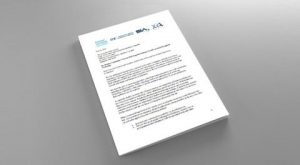
The Baltimore City Council’s Public Safety & Government Operations Committee moved on May 26, 2021, to advance a proposal that would ban nearly all applications of facial recognition technology in the city. Prior to the vote, the Security Industry Association (SIA) and other leading technology and business groups wrote a letter to the committee expressing concerns about the profound negative impact of the measure for residents of Baltimore.
Importantly, the letter noted, “[prohibiting] access to opt-in customer experience conveniences, whether in retail, health care or other settings, is much broader than the concerns raised around law enforcement and government applications.”
While a number of U.S. cities have banned use of the technology by city agencies, the proposal is only the second in the nation after a measure in Portland, Oregon, to restrict business use, and the first ever to criminalize even consumer applications of the technology.
The organisations noted that the proposed ordinance, as currently drafted, would prohibit banks from using facial recognition technology to enhance consumer security in financial transactions, prevent retailers from speeding checkout lines with contactless payment and prohibit remote online identity document verification needed by online sellers or gig economy workers.
Also detailed in the letter were the even more significant negative human impacts of prohibiting applications that provide increased and customised accessibility for disabled persons and banning technology that assists people suffering from blindness, memory loss or prosopagnosia (face blindness) in recognising friends and others.
“Baltimore leaders should seize the opportunity to support a balanced, common sense policy for the use of facial recognition that safeguards access to innovative services for city residents and serves as a model policy for other local jurisdictions. Unfortunately, an outright ban on facial recognition continues a distressing pattern in which the clear value of this technology is ignored. In such cases, it is local businesses and residents who stand to lose the most,” said SIA CEO Don Erickson. “SIA remains a willing participant in any genuine discussion that could lead to more rational policy making.”
The Information Technology and Innovation Foundation additionally reacted to the measure as “shockingly out of line with the current state of facial recognition technology and its growing adoption in many sectors of the economy,” and even one of the most vocal advocacy groups calling for a ban on facial recognition technology and extreme limits on others, the Electronic Frontier Foundation, opposes banning private sector use as a step too far.
SIA believes all technology products, including facial recognition, must only be used for purposes that are lawful, ethical and non discriminatory. In August 2020, SIA released new policy principles for the development and deployment of facial recognition technology, which include guidelines around the use of facial recognition technology by law enforcement and the public and private sectors.
“We urge the Council to continue dialogue with affected stakeholders to ensure such concerns can be addressed in a thoughtful and reasonable way and recommend SIA’s Principles for the Responsible and Effective Use of Facial Recognition Technology as helpful guidance in addressing these issues,” said Erickson. The joint letter came on the heels of a request to President Biden from the airline, travel, security and biometrics sectors, as well as the U.S. business community, urging rejection of a ban approach and adoption of policy recommendations for additional research, development, testing and government accountability measures.










